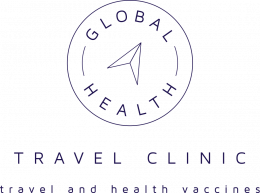The Summer Olympics 2024 are due to be held in Paris, France between Friday 26 July to Sunday 11 August 2024. The surfing event will take place in Tahiti between 27 July – 4 August 2024.
The Paralympics 2024 are due to be held in Paris, France from Wednesday 28 August to Sunday 8 September 2024.
Advice for travellers
Before you travel
Check the Foreign, Commonwealth & Development Office (FCO) advice on safety and security issues, entry requirements and travel warnings for your destination. You should take precautions to maintain your personal safety.
Carry a basic first aid kit and get comprehensive travel health insurance, including cover for any pre-existing conditions. Check out FCDO insurance advice and remember to pack your insurance documents. If you have any medical conditions, get advice from your GP or hospital specialist before you go, to help you manage your condition during your trip.
If you take regular medicines, see our advice about travelling with medication. For certain medicines, such as controlled drugs, you may need to apply for a special permit. If you are unsure about your medicine, contact the nearest embassy or consulate for your destination.
See our Country Information pages for current health information for your destination(s) during the tournament. Discuss your travel plans with your GP, practice nurse, pharmacist or travel clinic. Ideally this should be done at least six weeks prior to departure, but even a later appointment is still worthwhile.
You should be up to date with routine vaccination courses and boosters as recommended in the UK. These vaccinations include for example measles-mumps-rubella (MMR) vaccine and diphtheria-tetanus-polio vaccine.
While you are away
You are advised to practice food and water hygiene precautions and be prepared to manage travellers’ diarrhoea.
Mosquito spread illnesses are a risk in parts of mainland France and Tahiti. You are therefore advised to take insect bite avoidance measures during your stay.
Temperature and humidity can be very high. Remember to drink plenty of fluids and protect yourself from the sun by wearing appropriate clothing, a hat and sunglasses. Regularly apply high-factor sunscreen.
Take great care at all times when swimming. Currents can be deceptively strong, even on popular beaches. Always follow local warnings.
It is illegal to possess drugs and there may be severe penalties for drug offences. Pack all luggage yourself and do not carry anything through customs for anyone else.
Try to drink alcohol in moderation. Never swim or drive a vehicle after drinking. Excessive consumption of alcohol and anti-social or dangerous behaviour could result in being arrested or having a serious accident.
You are advised to avoid casual sexual relationships or use condoms. Other high risk activities include tattooing and body piercing; avoiding these will also reduce the risk of other blood- borne viruses including hepatitis B and C. Seek advice if you think you may have a sexually transmitted infection.
When you return
If you are ill within weeks or even months of your trip, particularly if you have fever or flu-like symptoms and/or diarrhoea and/or a skin rash, get urgent medical help. Remember to tell your health professional which countries you visited during your trip.

